
Table of Contents
Overview
Living with chronic pain can feel overwhelming and exhausting. Whether it stems from conditions like arthritis, fibromyalgia, or persistent back pain, chronic pain can drastically reduce your quality of life. While medications and therapies can offer relief, diet plays a significant and often overlooked role in pain management. Incorporating specific anti-inflammatory foods into your daily meals can help ease pain naturally, reducing inflammation and supporting overall health.
This blog will guide you through the best foods for alleviating chronic pain, how certain nutrients aid in reducing inflammation, and which foods you should avoid to prevent worsening pain.
Between Inflammation and Pain
Inflammation is your body’s natural response to injury or infection. In acute situations, it helps protect and heal the body. However, when inflammation becomes chronic, it can trigger or worsen pain. Chronic inflammation is often linked to conditions like arthritis, fibromyalgia, and even migraines. By addressing this inflammation, you can reduce the frequency and intensity of your pain.
Certain foods are rich in anti-inflammatory compounds that help reduce the body’s inflammatory response, offering a natural way to manage chronic pain. Conversely, some foods trigger inflammation and can aggravate pain. Understanding which foods support your body and which ones exacerbate inflammation is key to reducing chronic pain through diet
Related: Manage Chronic Pain with an Anti-Inflammatory Diet
Anti-Inflammatory Foods
Adopting a diet rich in anti-inflammatory foods is one of the best ways to naturally ease chronic pain. These foods contain compounds that help regulate inflammation, support your immune system, and improve overall health.
1. Omega-3 Fatty Acids

Omega-3 fatty acids are renowned for their potent anti-inflammatory properties. They help reduce the production of inflammatory chemicals in the body. Excellent sources of omega-3 fatty acids include:
- Fatty fish like salmon, mackerel, sardines, and anchovies. These fish are rich in EPA and DHA, two types of omega-3s that have been shown to reduce inflammation and alleviate pain, particularly in conditions like arthritis.
- Flaxseeds and chia seeds: These plant-based sources of omega-3s offer a great alternative for those who prefer not to consume fish.
- Walnuts: Another plant-based source, walnuts are an easy snack that supports inflammation reduction.
2. Antioxidant-Rich Fruits and Vegetables
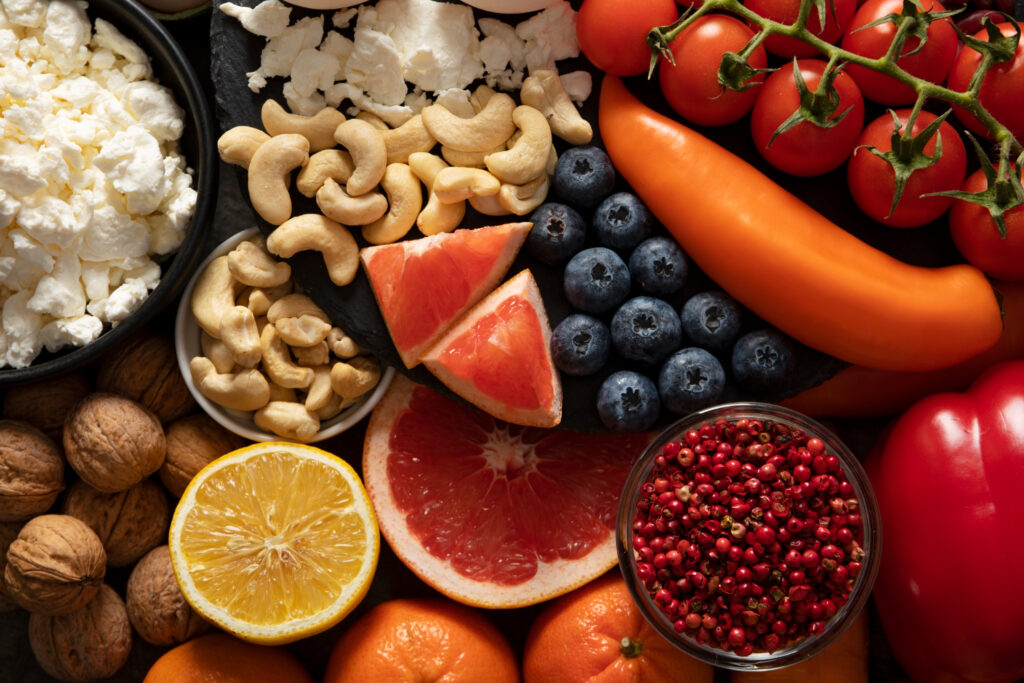
Antioxidants protect your body from damage caused by oxidative stress and free radicals, which can increase inflammation. Including a wide variety of colorful fruits and vegetables in your diet ensures you get a broad range of antioxidants. Key options include:
- Berries: Blueberries, strawberries, and raspberries are rich in anthocyanins, which help fight inflammation.
- Leafy greens: Vegetables like spinach, kale, and Swiss chard contain high levels of carotenoids and flavonoids that combat inflammation.
- Tart cherries: Studies suggest that tart cherries can significantly lower inflammatory markers and alleviate pain, particularly for those suffering from arthritis.
3. Herbs and Spices
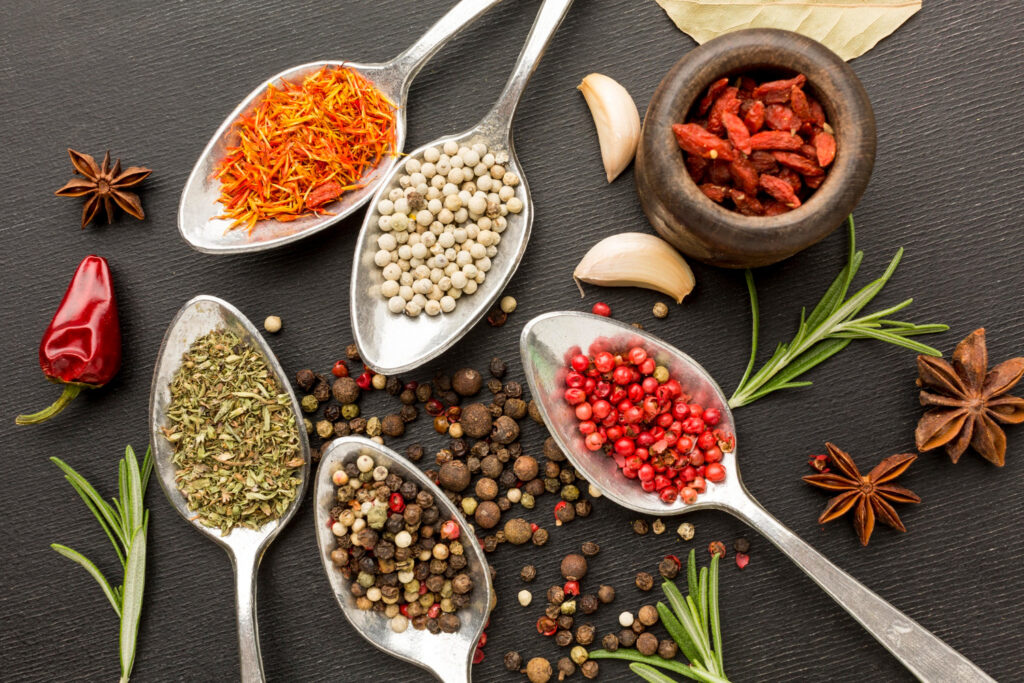
Certain herbs and spices contain anti-inflammatory compounds that can provide relief from chronic pain. They also add flavor to your meals, making healthy eating enjoyable. Some of the most effective herbs and spices include:
- Turmeric: The active compound curcumin is a powerful anti-inflammatory agent, often used to alleviate joint pain.
- Ginger: Known for its soothing properties, ginger reduces inflammation and is especially helpful for muscle pain and migraines.
- Garlic: Packed with sulfur compounds, garlic helps inhibit inflammatory enzymes in the body.
4. Whole Grains
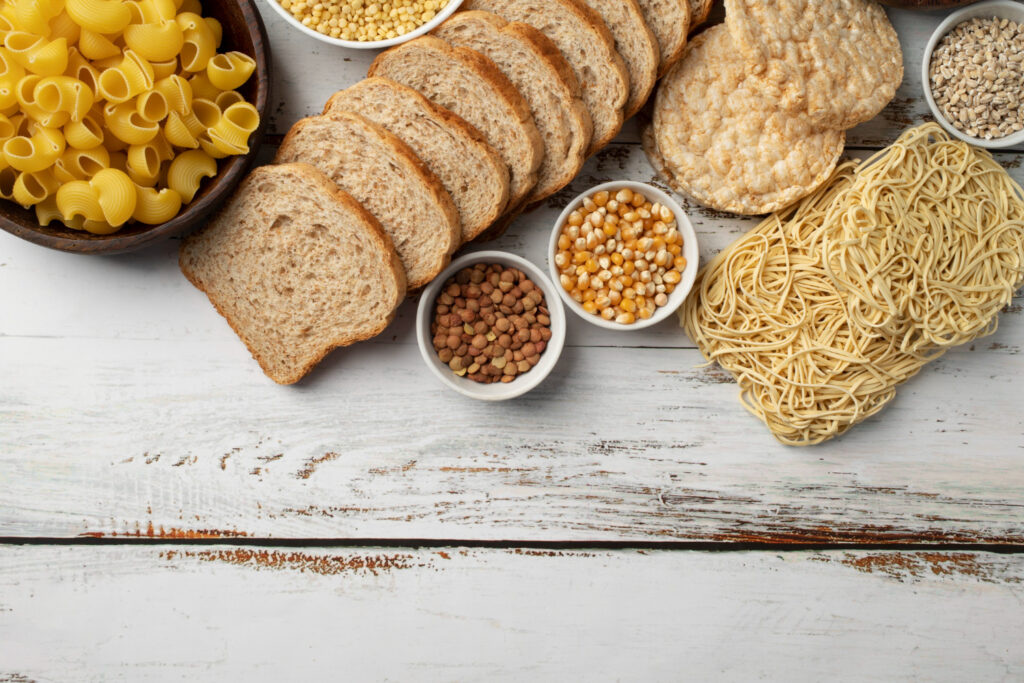
Whole grains, such as oats, quinoa, and brown rice, contain fiber and other nutrients that help reduce inflammation. Unlike refined grains, whole grains don’t cause spikes in blood sugar, which can lead to inflammation. Regular consumption of whole grains can lower CRP (C-reactive protein), a marker of inflammation.
5. Nuts and Seeds
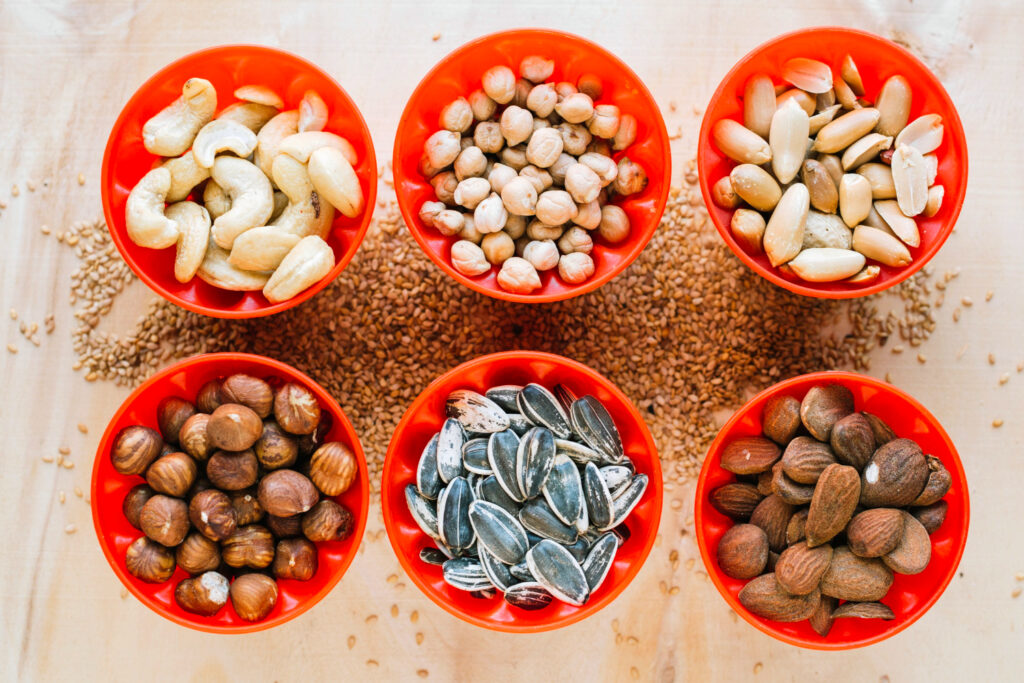
In addition to walnuts, other nuts like almonds and seeds such as flaxseeds and chia seeds are excellent sources of anti-inflammatory compounds. They are rich in healthy fats, antioxidants, and protein, making them a smart snack choice for pain management.
Foods to Avoid
Just as some foods fight inflammation, others can trigger it and exacerbate chronic pain. It’s important to minimize or eliminate these foods from your diet to help keep inflammation—and pain—under control.
1. Processed Foods and Refined Sugars

Highly processed foods, such as packaged snacks, sugary cereals, and fast food, contain unhealthy fats and refined sugars that promote inflammation. These foods can spike your blood sugar levels, leading to increased inflammatory responses. Avoiding them can help reduce pain associated with inflammation.
2. Red and Processed Meats
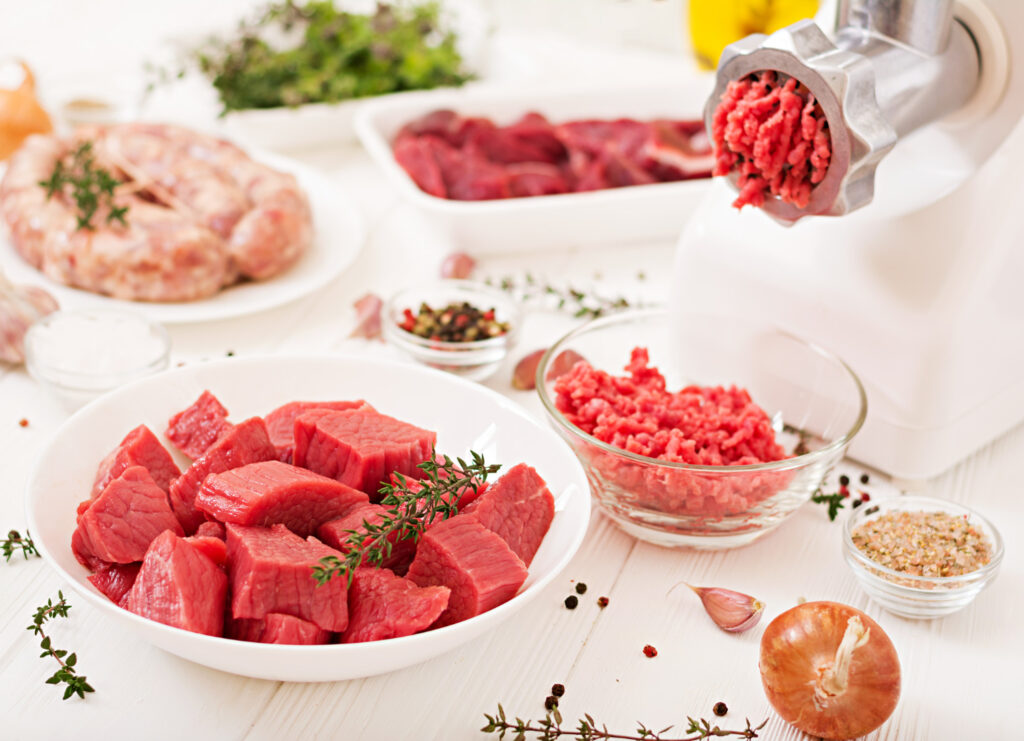
Red meat, such as beef and pork, and processed meats like bacon and sausages are high in saturated fats and contain inflammatory compounds called AGEs (advanced glycation end products). These compounds contribute to inflammation and can worsen conditions like arthritis and joint pain.
3. Alcohol

Excessive alcohol consumption can lead to systemic inflammation. While moderate drinking may not be harmful for everyone, overconsumption can trigger inflammatory pathways and worsen pain, especially for people with joint or muscle pain.
Nutritional Supplements to Support Pain Relief
In addition to consuming anti-inflammatory foods, certain supplements may help enhance your pain management efforts. Always consult with a healthcare professional before starting any supplement regimen.
1. Vitamin D

Low levels of vitamin D are often linked to increased pain sensitivity, particularly in conditions like arthritis and fibromyalgia. Supplementing with vitamin D can help improve musculoskeletal health and reduce pain.
2. Magnesium

Magnesium is essential for muscle and nerve function. Deficiencies in magnesium have been associated with chronic pain, including migraines and muscle spasms. Supplementing with magnesium, particularly in the form of magnesium glycinate, can help ease these symptoms.
3. Curcumin
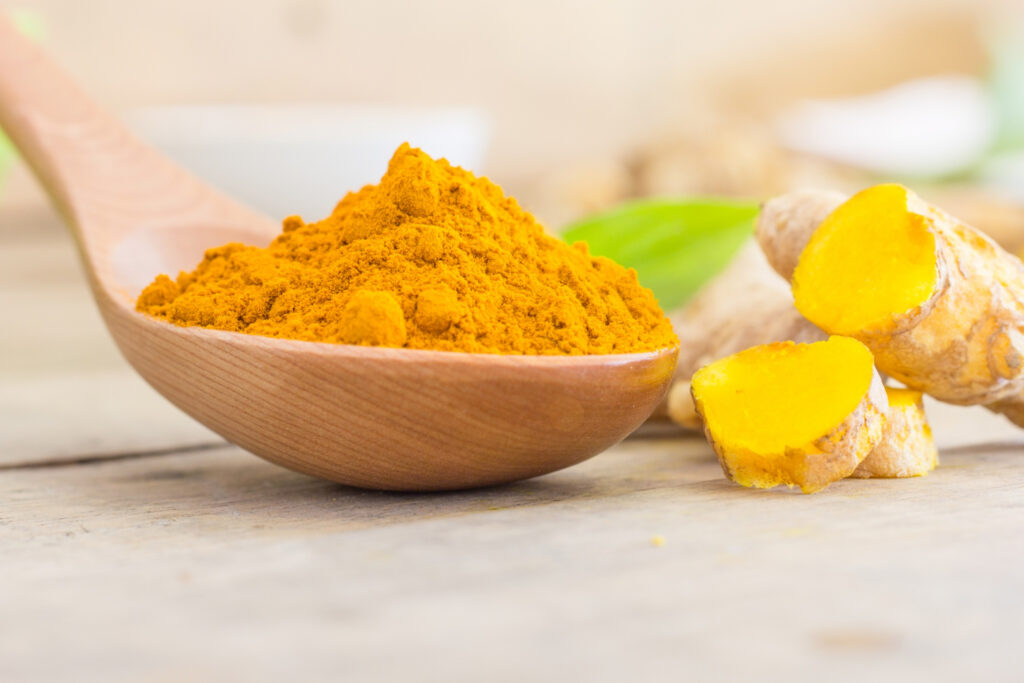
Curcumin supplements are a popular choice for those looking to reduce inflammation. This compound, found in turmeric, has been shown to be as effective as some anti-inflammatory drugs in reducing pain and swelling, particularly in arthritis sufferers.
The Importance of Gut Health in Pain Management
A significant portion of the immune system resides in the gut, making gut health crucial for managing inflammation and pain. Consuming probiotics and fiber-rich foods can support a healthy gut microbiome, reducing inflammation throughout the body. Foods like yogurt, kefir, sauerkraut, and fiber-rich vegetables help maintain a balanced gut, which can, in turn, ease chronic pain.
Lifestyle Changes for Pain Relief
Incorporating anti-inflammatory foods into your diet is just one part of managing chronic pain. To truly improve your condition, consider making the following lifestyle changes as well:
- Exercise regularly: Physical activity helps reduce inflammation, improve circulation, and strengthen muscles, all of which can alleviate chronic pain.
- Maintain a healthy weight: Excess weight can increase inflammation and put additional strain on joints and muscles. Maintaining a healthy weight can relieve pain, especially in conditions like arthritis or back pain.
- Reduce stress: Chronic stress can contribute to inflammation. Incorporating relaxation techniques like meditation, yoga, or deep breathing exercises can help manage stress and improve pain levels.
The Takeaway
While living with chronic pain can be challenging, taking control of your diet can make a substantial difference. By focusing on anti-inflammatory foods, addressing any nutritional deficiencies, and avoiding inflammatory triggers, you can significantly reduce your pain and improve your quality of life. Remember, food is a powerful tool in managing chronic pain, and with the right approach, you can start to feel better from the inside out. Always consult with your healthcare provider to develop a personalized plan that works best for you
Frequently Asked Questions
- How does inflammation relate to chronic pain?
Inflammation is the body’s natural response to injury or infection. However, chronic inflammation can lead to persistent pain, especially in conditions like arthritis, fibromyalgia, and other pain-related disorders. Reducing inflammation through diet can help alleviate pain. - Which foods are the most effective in reducing inflammation and chronic pain?
Foods rich in omega-3 fatty acids (like salmon and walnuts), antioxidant-packed fruits (such as berries), leafy greens, whole grains, and anti-inflammatory spices (like turmeric and ginger) are particularly effective in fighting inflammation and reducing chronic pain. - What foods should I avoid to prevent worsening my pain?
Processed foods, refined sugars, red and processed meats, and excessive alcohol can increase inflammation and worsen chronic pain. Avoiding these can help keep inflammation in check and reduce pain flare-ups. - Can supplements help with managing chronic pain?
Yes, certain supplements like vitamin D, magnesium, and curcumin have been shown to help reduce inflammation and support pain relief, particularly for conditions like arthritis, migraines, and muscle pain. However, it’s best to consult with a healthcare professional before starting any supplements. - How does gut health affect chronic pain?
A healthy gut supports a balanced immune system and reduces inflammation throughout the body. Eating probiotic-rich foods like yogurt and fiber-rich vegetables can improve gut health and, in turn, help manage chronic pain. - Are there lifestyle changes that can help in addition to diet?
Yes, regular exercise, maintaining a healthy weight, and reducing stress through relaxation techniques like yoga and meditation can complement an anti-inflammatory diet and further ease chronic pain. These lifestyle changes promote overall well-being and help alleviate pain.











